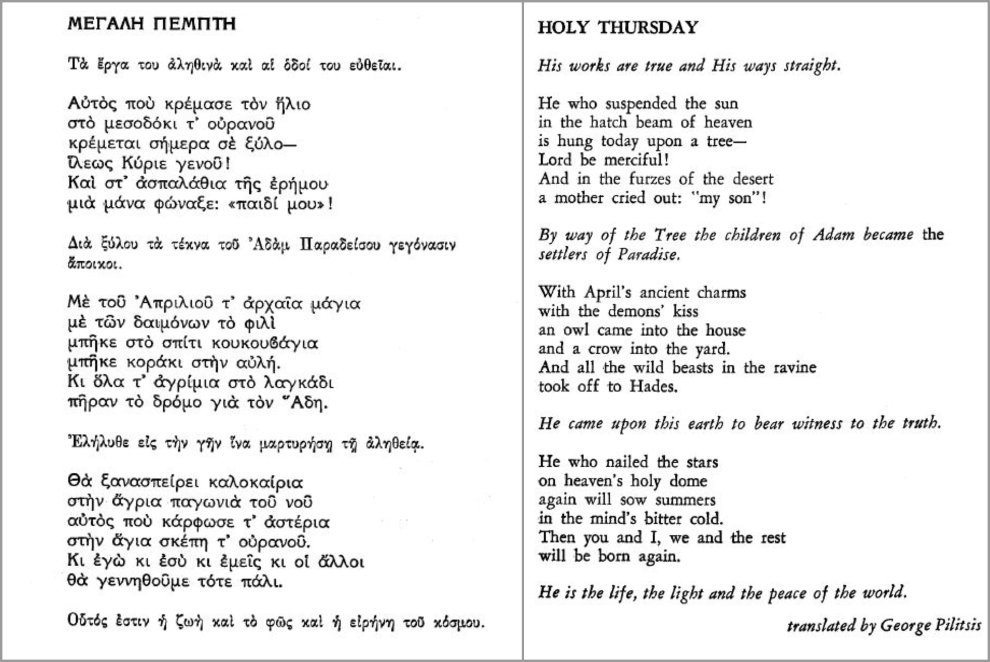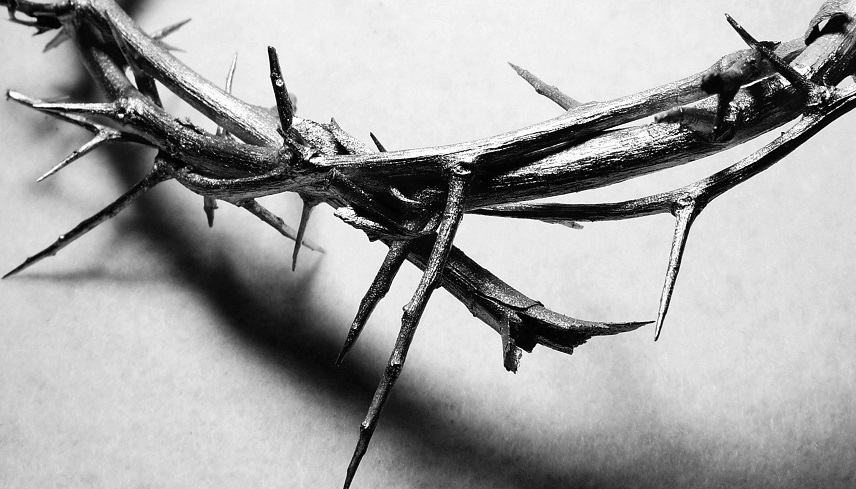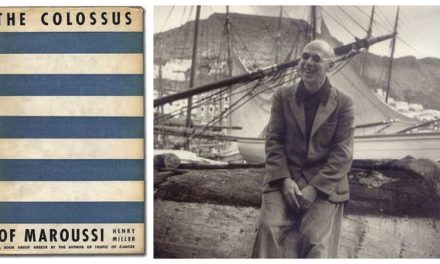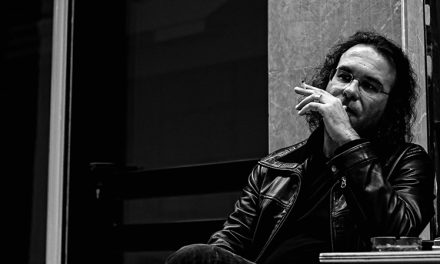Easter, or Pascha in Greek, is the most important religious holiday of the Orthodox Church marking the resurrection of Christ and the chance of rebirth for mankind. Easter holds a special place in the heart of Greek people, and has been the theme of many poems by significant Greek poets, such as Dionysios Solomos, Odysseas Elytis, Nikos Kazantzakis, Kostis Palamas, Angelos Sikelianos, Nikos Gatsos, Tasos Leivaditis, Giannis Varveris, Kiki Dimoula, etc.

The six songs of the Holy Week sequence, Days of the Epitaph by Nikos Gatsos are a tribute to Christ. The poet feels that Christ’s sacrifice was the ultimate manifestation of God’s love for people. All six songs are interspersed with frequent quotations, sometimes slightly modified, from the Bible and other religious texts, expressing the poet’s conviction that Christ is the only hope for mankind. The six songs of the Holy Week sequence are not followed, as one would have expected, by “Easter Sunday,” the day of Resurrection. In fact, in another of his poems “Song of Old Times,” Gatsos writes that “Resurrection will be long in coming,” meaning a symbolic resurrection with people themselves bringing peace to the earth.
In “Holy Thursday,” the day of Christ’s death, the poet again uses quotations from the Bible and the Holy mass. He starts with a note of praise, “His works are true and His ways straight” and continues with another quotation which points out that Christ’s crucifixion made it possible for the children of Adam to return to Paradise from which he was expelled. The poet expresses the hope that all people on earth will be born again. The song ends with the most important among the quotations, in which Christ personifies peace: “He is the life, the light and the peace of the world.“
The Poet
Poet, lyricist critic and translator, Nikos Gatsos stands apart in the annals of Greek literature. He was born in the village of Asea, in Arcadia in the Peloponnese, and went to school in Tripoli and Athens. By the time he entered the University of Athens to study philosophy he was already a fluent speaker of English and French. In Athens he came into contact with literary figures, particularly the poet Odysseus Elytis, with whom he formed a life-long friendship.

His first collections of verse, short poems written in a classical style, were published in the magazines Nea Estia (1931) and Rythmos (1933). For most of the decade, however, he dedicated himself to reviews and literary criticism. In 1943, during the Nazi occupation of Greece, Gatsos published his major work, the surrealist epic poem Amorgos. Amorgos was soon recognized as a major work, but proved to be the only book Gatsos published in his career. He later published three more poems, Elegeio in 1946, The Knight and Death in 1947 and Song of Old Times in 1963.
Following World War II, Gatsos worked for the Greek British Review as a translator and also for the Greek Radio Television as a translator, arranger and radio director, while he also became involved in translating theatrical plays for the National Theatre of Greece, the Art Theatre and the Folk Theatre. After part of Amorgos was set to music by Manos Hadzidakis, he established a new and influential role as a lyricist for Greece’s most popular composers, notably Hadzidakis, Theodorakis, Xarhakos, among others. Many of his songs are of great beauty and clarity, and helped to introduce a rare quality into Greek popular music.
In later years Gatsos established himself as a unique literary figure in Greece. Holding court in various Athenian cafés, he attracted intellectuals and writers, both foreign and Greek, and gave firm but gentle guidance to aspiring poets. In 1987, he was honoured with the Municipality of Athens Award and in 1991 he was elected corresponding member of the Academy of Barcelona. He died in Athens in 1992, and was buried in the village of his birth, as he had requested.
A.R.
TAGS: LITERATURE & BOOKS | READING GREECE














